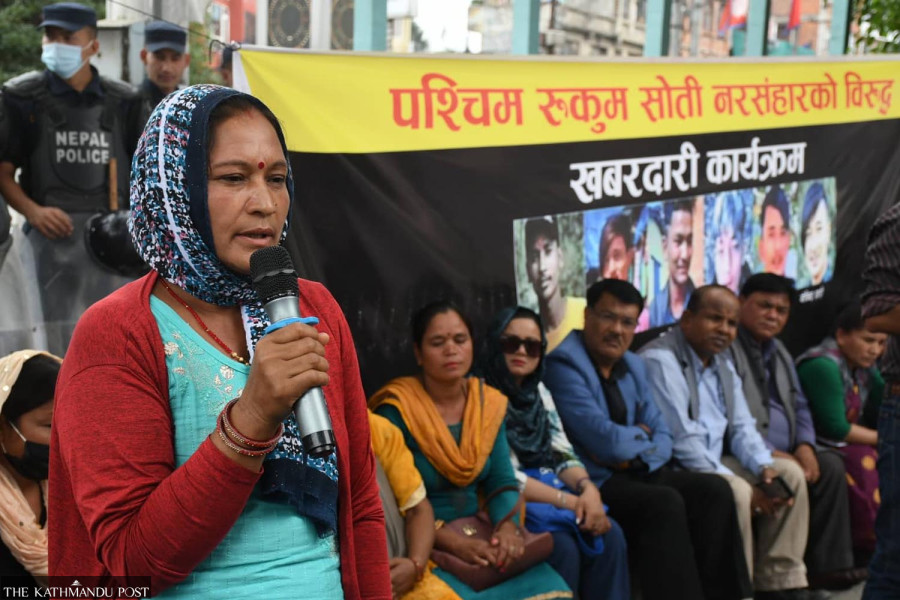Editorial
Justice running late
The justice process in the Rukum West killings should blaze a trail for other caste-killing cases.
Three years is a long time in one’s fight for justice. More so, if the fight is not against a casual incidence of violence but an entire social system founded on discrimination, violence and injustice. If Nepali society had been a little more sensitive to filling its deep social crevasses, the caste killing incident at Soti in Rukum West wouldn’t have lingered for three years. The families of Nabaraj BK, who had reportedly gone to Soti to meet his girlfriend from a so-called upper caste, and his friends—Ganesh Budha Magar, Tikaram Nepali, Lokendra Sunar, Govinda Shahi and Sanju BK—had been killed on May 23, 2020, and thrown into the Bheri River, in one of the most heinous caste violence incidents in the country in decades.
Besides the monstrosity of the immediate incident, the process that followed has been nothing short of inhuman. The then home minister Janardan Sharma was quick to absolve his influential, high-caste voters, as he claimed in Parliament that the Dalits had not been killed as such, that they had instead fallen into the river while being chased, and that it was not a case of caste discrimination. A parliamentary probe blasted Sharma’s claim, as it established that the deaths were a premeditated mass murder influenced by caste discrimination. Sharma, though, has been persistent in his attempts to shield his voter base at the cost of dehumanising the victims and their families. What’s more, 11 of the 34 accused in the case, including the mother of Nabaraj BK’s purported girlfriend who was known as the main conspirator in the killings, have been let out of the bars.
The delayed justice process has not only inflicted immense psychological trauma on the victims’ families, it has also led to a displacement of the families as they live under the spectre of yet another episode of physical violence by the offending party. And yet, the justice process has dragged on, with the hearing on the case postponed for as petty a reason as the judge having to travel out of the district for personal work. Such insensitivity exposes deeply-rooted casteism that characterises Nepal’s public institutions. From police administration to politicians to judiciary, to a section of the people, criminal apathy to the cause of the Dalits seems to be embedded in our very being. This should change.
The (hopefully) final hearing in the Rukum caste killing case, slated for June 13 will, let us hope, restore justice. Its significance lies not in the fact that it is one of the most widely reported and debated cases of caste violence in recent years, but it will show the way for justice in the killings of Sete Damai in Dailekh, Manbir Sunar in Kalikot, Shiva Shankar Das in Saptari, Ajit Mijar in Kavre, Angira Pasi in Rupandehi, Bhim Bahadur Biswakarma in Chitwan… The list goes on and on. Here’s wishing that this page wouldn’t have to carry yet another obituary of a Dalit human for as innocuous an act as entering a temple, touching a water pitcher, or loving another human.




 13.12°C Kathmandu
13.12°C Kathmandu














